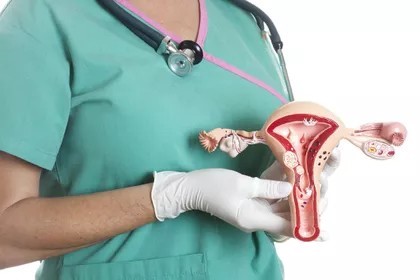Imagine that somewhere in the world, a teen is flipping a biology text and getting absolutely fascinated by the reproductive system. This curious teen would proceed to read about how sperms travel towards an egg cell. The egg is projected to do nothing else but wait to receive genetic information from sperms. This teen like many adults in the world, would walk away thinking that the female reproductive gamete (the egg cell) is passive during fertilization.
It is possible that you hold the same belief and have done so, for as long as you can remember. Let me apologize in advance, as I am about to burst your bubble. It is no fault of yours, your biology texts told you only one side of the story. The other side of the story is revealed in a 2013 research that shows that the entirety of the female reproductive system does much more than biologists portray. According to Lisa Campo-Engelstein and Nadia L. Johnson, contrary to what we have been told, the egg cell does not merely wait for the strongest sperm cells to fertilise it.
Read Also: New Scientific Insights On Anti-Aging And Longevity
The researchers further pointed out that there are some gray areas in the anatomy and physiology of the female reproductive system that the world does not know due to the gendered language used to describe them. Adding that the entire female reproductive system works together to transport the sperm from the vagina to the cervix and to the egg, which actually selects the most viable sperm cell.
According to Lisa Campo-Engelstein and Nadia L. Johnson, the female reproductive system is more participatory in fertilization than biologists report. In their work titled, ‘Revisiting ‘The fertilization fairytale:’ an analysis of gendered language used to describe fertilization in science textbooks from middle school to medical school‘, they were able to establish that the female reproductive system does not get enough credit for the role it plays in the continuity of life. The root cause as reported by them is inadequate communication, the language used, and male dominance in the biological research field.
To buttress the assertion of these researchers is the work of science reporter, Rachel Gross, who is the author of “An Anatomical Voyage: Vagina Obscura.” In her book, she carefully examines the female reproductive system, studying the anatomy of the vagina to provide insights that debunk many ‘reproductive health metaphors’. Speaking with Vox, she talks about how her experience led her to research and to uncover the hidden truths about the female reproductive organ and how it works.
In Unexplainable, Vox’s podcast, Rachel talks about the clitoris and how its diminutive nature does not make it any less important than the glans penis. Her research led to uncovering the fact that menopause might not put an end to a woman’s ability to procreate, as ovaries can use stem cells to generate new eggs. If the insight she has provided is anything to go by, the biological clock myth might be obsolete in no distant time. In addition to this, she points to the diagnostic and prognostic advantage of in-depth understanding of the female reproductive organ in contemporary medicine.
It all boils down to apt science communication, reporting research findings with clarity to ensure that the next generation of researchers are building with, and on the right information. Also, if there are more women like Rachel- curious enough to ask the right questions and dig up some overlooked parts of the female body we might be able to better understand menopause, common and recurrent vaginal infections, and how women can effectively deal with these things.
We need more women in science and in research. We also need more female science communicators who are curious, who ask the right questions to help the world extract the minutest but valuable information needed for our collective progress.
Ehi-kowoicho Ogwiji is a storyteller and natural scientist who is given to advocacy for a science-literate Africa. Ehi-kowoicho aspires to be a renowned science communicator and STEM thought leader in Africa and beyond. She writes from Abuja, Nigeria. Connect with her on social media @ogwijiehi or email her at [email protected]










